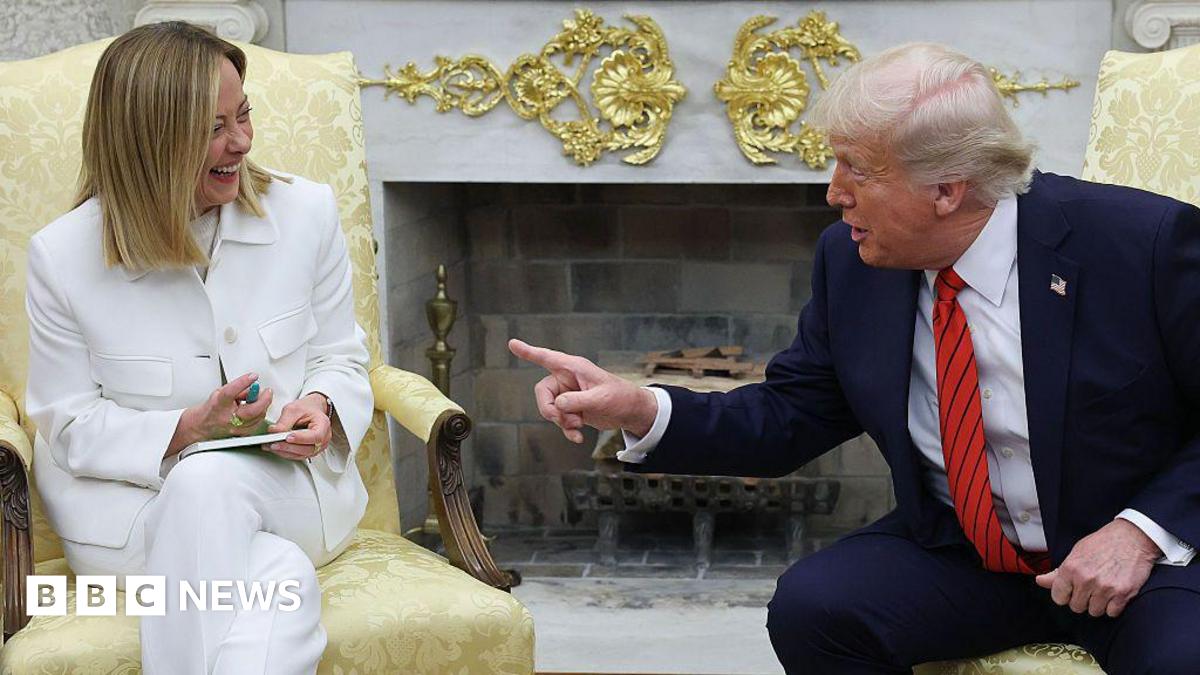Trump, Meloni Boost US-EU Trade Deal Prospects: A New Era of Transatlantic Cooperation?
A potential thaw in US-EU trade relations is on the horizon, fueled by unexpected alliances and shifting political landscapes. The recent meetings between former US President Donald Trump and Italian Prime Minister Giorgia Meloni have sparked renewed speculation about the prospects of a comprehensive US-EU trade agreement, a prospect that seemed distant just months ago. While challenges remain, the potential for collaboration under this unlikely pairing is creating a buzz among international trade experts.
The Unexpected Partnership: Trump and Meloni
The seemingly disparate political ideologies of Trump and Meloni might appear to clash. However, both leaders share a common thread: a skepticism towards the established global order and a desire for greater national sovereignty. This shared perspective, some analysts argue, could form the basis for a more pragmatic approach to trade negotiations, one less burdened by ideological baggage.
-
Meloni's Pragmatism: Meloni, while firmly rooted in her conservative values, has shown a willingness to engage with international partners on issues of mutual benefit. Her focus on economic growth for Italy could incentivize her to seek closer ties with the US, particularly in areas of trade and investment.
-
Trump's Shifting Stance?: While Trump's past protectionist rhetoric remains a concern, his recent engagements suggest a potential softening of his stance. His emphasis on bilateral deals could be interpreted as a desire for more tailored trade agreements, potentially paving the way for a more flexible approach with the EU.
Potential Benefits of a US-EU Trade Deal
A revitalized trade agreement between the US and EU could yield significant benefits for both sides:
-
Economic Growth: Eliminating or reducing trade barriers would boost economic activity on both sides of the Atlantic, creating jobs and increasing consumer choice.
-
Strategic Alignment: A stronger economic partnership would reinforce the strategic alliance between the US and EU, particularly in the face of growing challenges from China and Russia.
-
Technological Innovation: Enhanced cooperation on regulatory issues and standards could foster innovation and collaboration in key sectors like technology and renewable energy.
Obstacles and Challenges
Despite the potential benefits, significant hurdles remain:
-
Protectionist Sentiment: Protectionist sentiments remain prevalent in both the US and EU, posing a challenge to reaching a comprehensive agreement.
-
Agricultural Disputes: Differences in agricultural policies and standards continue to be a major point of contention.
-
Regulatory Differences: Harmonizing regulations and standards across such diverse economies will require considerable effort and compromise.
The Road Ahead: Navigating Uncertainty
The path towards a new US-EU trade deal is undeniably complex. The success of any negotiations will depend on the willingness of both sides to compromise and find common ground. The involvement of Trump and Meloni, while potentially surprising, introduces a new dynamic to the discussion. Their shared focus on national interests, however, could ironically lead to a more pragmatic and ultimately successful outcome.
What do you think? Could this unlikely partnership pave the way for a new era of transatlantic trade cooperation? Share your thoughts in the comments below!
(Note: This article is for informational purposes only and does not constitute financial or political advice. The opinions expressed are based on current analyses and may change with evolving circumstances.)

